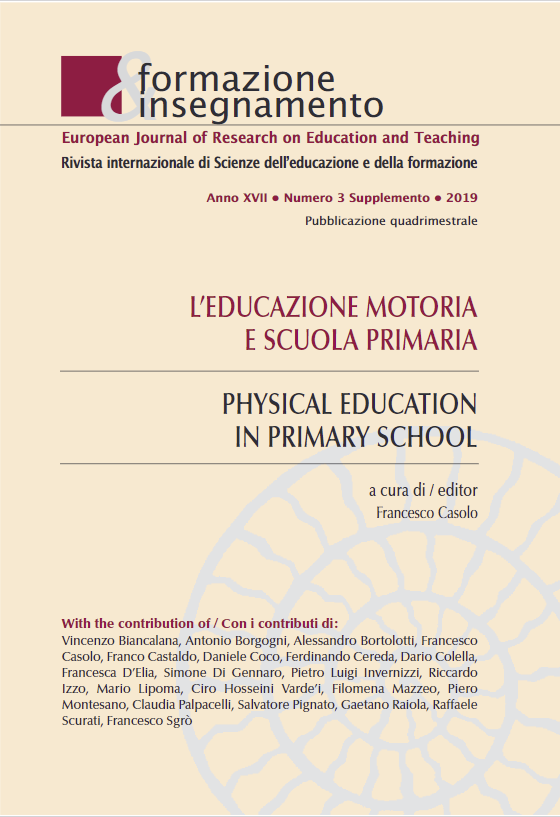The master of the game is the game, not the master. An essay about the “internal logic” of playful-motor activities
DOI:
https://doi.org/10.7346/-feis-XVII-03-19_03Abstract
The article seeks to introduce a subject, called Motor Praxeology, which can provide some new ideas to the Physical Education epistemology, and useful for both scientific research and educational programs. Developed along the end of last century by Pierre Parlebas, Parisian professor of Sociology and Physical Education, Motor Praxeology offers interesting analytical tools, in order to facilitate the recognition of what makes both Sports and Motor Games effective and unique experiences, apt for personal and social development, but in different ways. It seems particularly helpful to analyze and classify the structural dimensions of both socio-motoric interactions, and different environmental settings (such as natural and artificial fields). The result devises different “areas”, everyone with its own specific impact on people’s educational experiences. Moreover, an empirical work is presented. Born within an ex-post facto scenario, is based on some fundamental praxeological concepts, and aimed at “discover” the Internal Logic. The latter, based on Universal of Games (Space, Time, Objects, Roles, Relations, Scores) pertain to every practice, for instance Traditional Games and Sports. In a nutshell, achieved results lead to understand Motor Games’ role for cultural purposes.
Downloads
Published
How to Cite
Issue
Section
License
Copyright (c) 2019 Pensa MultiMedia

This work is licensed under a Creative Commons Attribution 4.0 International License.
Formazione & insegnamento is distributed under Attribution 4.0 International (CC BY 4.0).
For further details, please refer to our Repository & Archiving Policy, as well as our Copyright & Licensing Terms.





